By Marissa Johnson
Ebony magazine published a controversial edition in February 1966 posing the question “Are Negro Girls Getting Prettier?” Never mind that the word “negro” might draw a wince from readers in this new millennium. The issue was a hot button one then, and it is so today as well.
The magazine cover features women with lighter skin who have more “white” features than perhaps the average woman does. Not one woman on the cover of this issue had darker skin, and each woman had straightened hair. Perhaps, the pictures were artificially lightened, or perhaps that is what the standard of beauty was in the 1960’s for a black woman.
Ebony Magazine was flooded with pictures of women with straightened hair and ads for hot comb companies and special straightening hairdressings. One hot comb company lambasted the danger of using chemical relaxers while urging readers to think of their hot comb as a “blessed nuisance.”
It was difficult to find a single woman in the magazine that wore braids, twists, or locks. In this millennium, natural hair is becoming increasingly appropriate for black women including in the workplace, but there is still a certain underlying pressure to conform and straighten locks. However in this regard, America has grown by leaps and bounds as a society. It is not too far of a leap to make that one day black women will not feel pressured to straighten their hair or feel pressured to let their hair “go natural.” Perhaps, this will happen within the next fifty years.
Today, stars like Kerry Washington and Nupita Nyong’o, the beautiful dark skinned actress famous for her role in the Academy Award winning movie “Twelve Years a Slave” have been involved in skin-lightening scandals in which magazines lightened their skin tones to give them more commercial appeal. So, perhaps black women might be considered “prettier” but it still seems that despite the momentum of groups dedicated to promoting black self-worth and the popularity of the natural hair movement, the message that lighter and whiter is better is still being sent to today’s Black woman.
In this politically correct world, it seems that advocating that a black woman see herself as someone of worth is akin to a national scandal. Michele Obama was slammed in the media this past March for not only daring to make an appearance at the event “Black Girls Rock” which was broadcast on BET but for having the audacity to make the statement “Black Girls Rock.” There was a twitter storm from groups that felt excluded. The hashtag #whitegirlsrock even trended.
A little under fifty years after the Ebony Magazine question “Are Negro Girls Getting Prettier” the black female community faces the same issues. The fact that such campaigns like “My Black is Beautiful” and “Black Girls Rock” need to exist and that skin lightening continues to happen at major publications means the issue of black female identity has yet to be secured. But, looking at another Ebony Magazine publication from 1966, one can see the identity problem is not just a female one but one for black males as well.
Ads for liquor companies including Canada Dry feature black men surrounded by white women hanging off their shoulders, gazing at the black men with awestruck mooning eyes. Ad after ad featured a solitary black men smoking cigarettes or cigars with white men. The underlying message seems to be that the black man’s goal should be to be with a white girl and to become as white as possible by buying these products. Perhaps, this is an issue today. Just as black women should have the choice to pick whether or not to go natural, black men should not feel pressured to date white women or, conversely, to not date white women.
A photo of the infamous Ebony magazine cover has circulated on Facebook and has been shared over 700 times, raising countless eyebrows and inciting both outrage at the magazine and applause for its message. Believe it or not, the issue was received about the same in 1966 as it is in 2015.
One woman called the issue “marvelous” and thanked them for boosting black girls’ morale. While another woman called this “the most ridiculous article to date” saying she did not get why black men did not realize black women are not pretty. Yet another woman said black women are indeed getting prettier simply because they are growing into the middle class, can afford better clothes and hair care, and don’t have to scrub toilets and floors anymore. This issue was divisive then, and the issue of black identity may continue to be divisive.
The identity issue is one for both black women and black men, although the black female identity issue seems to receive more coverage. As a society, in some online communities, we are moving in a direction of almost stigmatizing anything that could be associated with whiteness including the straightening of hair or dating outside of the black race. It is a natural reaction of fear and maybe of shame for buying into the messages popular magazines put forth in the 1960’s. This all or nothing approach is an extreme and is one that will hopefully be balanced within the next half decade as the issue of black identity may finally make more progress.






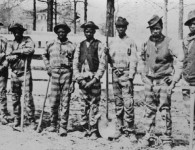
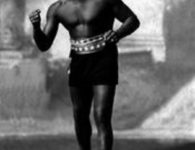
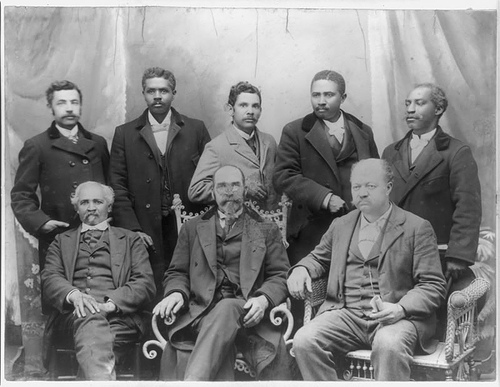


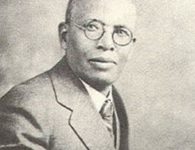
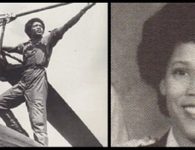
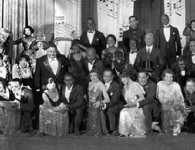




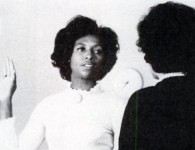


5 Comments
Not much has changed.
[…] post Modern Response to 1966 Ebony Edition “Are Negro Girls Getting Prettier” appeared first on Black […]
Im looking for pictures from this magazine.02/1966 50c.Two things. They have never changed,Black women were beautiful/pretty and intelligent before and then and now and always will be.Our black women are truly blessed.
Lupita Nyong’o has starred in ELEVEN movies since “Twelve Years a Slave”, including playing the love interest to King T’Challah himself. Y’all stay telling on yourselves.
You must consider the ‘historical context’ of our past, as documented in periodicals and other vehicles of communication used in ‘Pop Culture’. It is a mistake to fret about how we reacted in the past or blame or ridicule those in the past. If nothing more use it as an example of how far reaching, ‘White Supremacy’ was/is and the effect it has had on every aspect of our being.